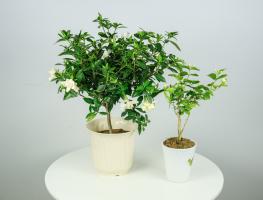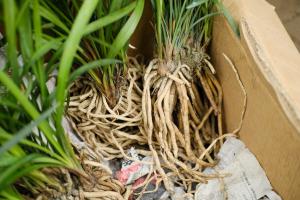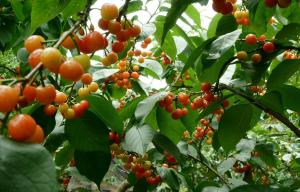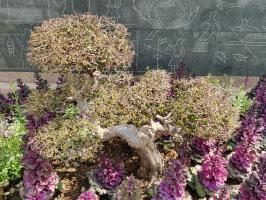Is Tap Water Good for Outdoor Plants?
Many gardeners often wonder whether or not their outdoor plants can be watered with tap water. While tap water is convenient and readily available, it may not always be the best option for outdoor plants. In this article, we will explore the pros and cons of using tap water for your outdoor plants.
The Benefits of Tap Water
The main benefit of tap water is convenience. It is readily available and requires no extra effort to obtain. Additionally, most tap water sources are treated with chemicals such as chlorine and fluoride, which can help to prevent the spread of bacteria and keep plants healthy.
The Disadvantages of Tap Water
While tap water may be convenient, it is not always the best option for outdoor plants. Firstly, tap water may contain high levels of minerals such as calcium, magnesium, and sodium, which can build up in the soil over time and cause damage to the roots of plants. Additionally, tap water may contain contaminants such as pesticides, herbicides, and heavy metals, which can be harmful to the health of plants and the environment.
Alternatives to Tap Water
If you are concerned about the quality of your tap water, there are several alternatives that you can consider. One option is to use rainwater. Rainwater is naturally pure and contains no mineral or chemical contaminants, making it an excellent choice for outdoor plants. You can collect rainwater in a barrel or container and use it to water your plants as needed.
Another option is to use distilled water. Distilled water is treated through a process that removes all minerals and contaminants, leaving behind pure water. However, using distilled water can be costly and is not a sustainable solution for long-term use.
Best Practices for Watering Outdoor Plants
Regardless of the type of water you choose to use, there are some best practices to keep in mind when watering your outdoor plants. One of the most important things to remember is to water your plants deeply and consistently. This means watering your plants thoroughly to ensure that the water reaches the roots of the plant.
Additionally, it is best to water your plants in the early morning or late evening when the weather is cool. This can help to reduce water evaporation and prevent water from being wasted. Try to avoid watering your plants during the hottest part of the day, as this can cause the water to evaporate quickly and may not reach the roots of the plant.
Conclusion
While tap water may be convenient, it is not always the best option for outdoor plants. Depending on the quality of your tap water, it may contain high levels of minerals and contaminants that can harm the health of your plants. If you are concerned about the quality of your tap water, consider using rainwater or distilled water as an alternative. Regardless of the type of water you choose to use, be sure to water your plants deeply and consistently, and avoid watering them during the hottest part of the day to ensure that your plants receive the water they need to thrive.

 how many times do yo...
how many times do yo... how many planted tre...
how many planted tre... how many pine trees ...
how many pine trees ... how many pecan trees...
how many pecan trees... how many plants comp...
how many plants comp... how many plants can ...
how many plants can ... how many plants and ...
how many plants and ... how many pepper plan...
how many pepper plan...
































